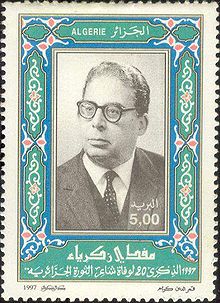Jugurtha's Tragedy and Algerian Iliad
Coming to North Africa, the conlonizers', whether English, Italian or French, imaging themselves as Romans or Greek heroes/gods. It is interesting to see how Algerian play writer Abdelrahman Madwi has used Numidian King Jugurtha to historicize, on the stage, Algerian war of independence against the French occupation; a technique which not unparalleled in other North African and Arabic countries, let along postcolonial national theaters. It seems that the play was popular so that it was published until 1984 in three editions. See also Algerian Epic, called, Iliad by Cheikh Zakaria (1908-1977).





